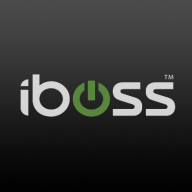


Forcepoint CASB and Axis Security compete in the cloud security space. Axis Security stands out for its advanced features, while Forcepoint CASB is favored for better pricing and customer support.
Features: Forcepoint CASB offers comprehensive threat protection, real-time visibility, and seamless integration with existing DLP solutions. Axis Security provides advanced zero-trust network security, single sign-on capabilities, and superior access management, ensuring identity protection and secure access.
Room for Improvement: Forcepoint CASB could enhance its ease of use and automation capabilities. It might also benefit from more innovative integrations and expanded device compatibility. Axis Security might improve deployment complexity, reduce its configuration time, and offer more competitive pricing to increase accessibility.
Ease of Deployment and Customer Service: Forcepoint CASB ensures a straightforward deployment and strong customer support. Axis Security offers a cloud-based deployment model that can require more configuration but compensates with extensive training resources and dedicated customer service.
Pricing and ROI: Forcepoint CASB is known for its competitive pricing and attractive ROI, appealing to cost-conscious businesses. Axis Security, though generally more expensive, offers higher ROI due to its advanced security features, catering to those prioritizing robust security over cost.
| Product | Market Share (%) |
|---|---|
| iboss | 2.5% |
| Axis Security | 1.6% |
| Forcepoint CASB | 1.5% |
| Other | 94.4% |

| Company Size | Count |
|---|---|
| Small Business | 6 |
| Midsize Enterprise | 6 |
| Large Enterprise | 5 |
| Company Size | Count |
|---|---|
| Small Business | 2 |
| Midsize Enterprise | 1 |
| Large Enterprise | 5 |
| Company Size | Count |
|---|---|
| Small Business | 6 |
| Midsize Enterprise | 2 |
| Large Enterprise | 3 |
Iboss offers a comprehensive cloud-based security platform valued for its scalability and autonomous features, ensuring robust security with easy deployment and management capabilities.
Renowned for its robust security architecture, Iboss integrates seamlessly within diverse networks, delivering efficient granular filtering and advanced content categorization. Its single pane of glass console provides ease of management, allowing rapid scalability suitable for rapidly deploying environments. Operates in BYOD setups due to inline filtering without device installation. Integration with cloud-based applications enhances user control, and features like SASE, SSL inspection, and ChatGPT risk protection stand as highlights. Despite its strengths, users have pointed out areas for enhancement like direct navigation in reports, SSL decryption, and better cloud integration while having room to improve data loss prevention.
What are the most important features of Iboss?The usage of Iboss spans educational institutions, specifically K-12, to enforce internet policies, protect data, and support remote work environments. It provides web filtering and security frameworks to ensure safe browsing. Its platform-as-a-service model offers flexibility for both cloud-based and on-premises requirements, integrating seamlessly to deliver enhanced security features suitable for various deployment needs including zero trust, CASB, and network security for work-from-home setups.
Axis Security is a prominent enterprise security solution, specializing in Zero Trust Network Access (ZTNA). The Axis Security Application Access Cloud platform is designed to secure remote access to applications and services hosted in the cloud or on-premises. It aims to simplify and enhance access controls while maintaining strong security measures.
Axis Security's platform stands out by offering a comprehensive, cloud-native solution designed to enable secure access to private applications. Their Application Access Cloud simplifies network security, eliminating the need for traditional VPNs, and provides a more secure and efficient way to connect users to private applications, regardless of where the users or the applications are located.
Axis Security users on PeerSpot have highlighted the ease of deployment and the non-intrusive nature of Axis Security's solution as major advantages. One IT Director noted, "The implementation was straightforward and didn’t disrupt our existing operations, which was a major plus." Another user, a Security Manager, praised the platform's robust security features, saying, "Axis Security has significantly enhanced our ability to control and monitor application access, giving us peace of mind in our security operations."
Axis Security follows the principles of zero-trust architecture, which means it treats every access request as potentially untrusted, regardless of the user's location or network. It applies rigorous authentication and authorization controls to ensure only authorized users can access specific applications and resources. Axis Security enables secure remote access to applications and services without requiring a VPN (Virtual Private Network). It establishes a secure connection between users and applications, protecting against potential threats and reducing the attack surface.
With Axis Security, organizations can granularly control user access to specific applications or services. This ensures that users only have access to the resources they need, reducing the risk of unauthorized access or data breaches. The platform simplifies access management by providing a centralized control point for managing user access policies. IT administrators can define access rules based on user roles, groups, or other criteria, making it easier to enforce security policies and maintain compliance.
Axis Security continuously monitors user activity and application access, detecting potential threats and anomalies in real-time. It provides insights into user behavior, allowing organizations to identify and mitigate security risks promptly.
Axis Security is built on a cloud-native architecture, allowing it to scale and adapt to dynamic cloud environments. It can seamlessly integrate with various cloud services and supports hybrid deployments, making it suitable for organizations with diverse infrastructure setups.
Axis Security aims to provide secure and simplified remote access to applications while adhering to the principles of zero trust. By implementing granular access controls and continuous monitoring, it helps organizations protect their critical resources and reduce the risk of unauthorized access or data breaches.
Forcepoint CASB (Cloud Access Security Broker) is a security solution which is designed to secure and monitor the use of cloud services within an organization. It helps organizations gain visibility and control over the cloud applications and services being used by their employees. Forcepoint CASB integrates with cloud service providers' APIs and employs various techniques such as traffic analysis, proxying, and API-based controls to provide security and visibility into cloud application usage. It can be deployed as a standalone solution or integrated with other security technologies within an organization's existing infrastructure.
Forcepoint CASB Features:
Forcepoint CASB Benefits:
Reviews from Real Users
Edwin Eze Osiago, Regional Solutions Manager (Sub-Sahara Africa) at InfodataReliable, says that Forcepoint CASB is "Easy to set up and offers good visibility".
PeerSpot user, Professional Services Coordinator at a tech vendor, writes that Forcepoint CASB "Needs better backend code, requires stronger technical support, and the initial setup should be easier" and also adds that "The most valuable aspect for us is the fact that the product seamlessly integrates with the Forcepoint DLP".
Mahendra Bedre, Lead at Infrastructure Solutions ALM, says that Forcepoint CASB's "Macro integration and IDs for credentials are great features; It is easy to use with a good layout".
We monitor all Cloud Access Security Brokers (CASB) reviews to prevent fraudulent reviews and keep review quality high. We do not post reviews by company employees or direct competitors. We validate each review for authenticity via cross-reference with LinkedIn, and personal follow-up with the reviewer when necessary.